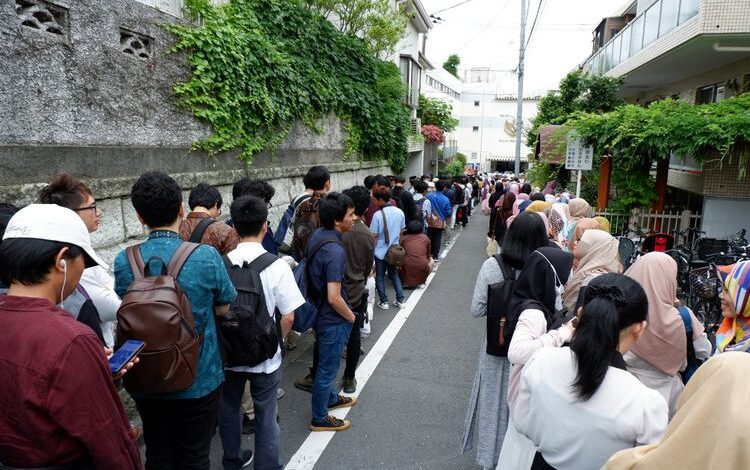
By Ali Syarief
本論文は、イスラームの教義とその精神が、現代の多文化社会においてどのように相互理解と責任を促進するかを探求するものです。
特に、クルアーンのスーラ・フジュラート第13節における「lita‘ārafū(お互いを知り合う)」という概念に焦点を当てています。
この概念は、イスラームが単なる宗教的義務にとどまらず、異なる文化や宗教を尊重し、理解し合うことを重視することを示しています。
本論文では、lita‘ārafūの精神が、現代の多文化社会においてどのように適用されるべきか、またその実践がどのように相互理解と責任を促進するかについて論じています。
この研究が、イスラームと他の文化・宗教との対話と協力の促進に寄与することを期待しています。
In today’s interconnected world, encounters between different cultures and religions are inevitable. However, differences are often misunderstood, and misunderstandings can escalate into social tensions. In this context, it is crucial to understand that Islam fundamentally emphasizes dialogue, respect, and mutual understanding—not domination or coercion.
The Qur’an articulates this principle clearly in Surah Al-Hujurāt, verse 13:
“O mankind, indeed We have created you from male and female and made you peoples and tribes that you may know one another (lita‘ārafū). Indeed, the most noble of you in the sight of Allah is the most righteous of you.”
This verse conveys three essential messages. First, Islam is universal, inviting all humanity to recognize and respect one another. Second, diversity is a natural reality, meant to be a bridge for understanding rather than a source of division. Third, true honor and virtue are determined by righteousness and ethical conduct, not by race, ethnicity, or religious affiliation.
From a cross-cultural perspective, the principle of lita‘ārafū requires Muslims to respect the traditions, customs, and social norms of the societies they inhabit. For example, Muslims living in Japan must honor Japanese cultural practices and social expectations. Respecting local communities is not a compromise of faith; it reflects the ethical and moral dimensions of Islam in practice.
Unfortunately, recent activities by certain Islamic groups in Japan have disrupted local communities by attempting to impose their religious norms. Such behavior contradicts the very spirit of lita‘ārafū. Imposing one’s values on another society is not “da’wah” or religious outreach—it is coercion that generates conflict and misunderstanding. True Islamic practice encourages integration and mutual respect while maintaining personal faith, not confrontation or cultural domination.
In conclusion, Islam teaches understanding, respect, and moral integrity. The spirit of lita‘ārafū reminds us that diversity is a gift, not a threat. Every Muslim has a responsibility to engage with the local society respectfully, allowing differences to enrich rather than divide. Ignoring this principle, as seen in recent disruptive activities in Japan, represents a deviation from the authentic teachings of Islam. In a globalized world, cross-cultural awareness is not optional—it is a moral imperative that upholds the true essence of the faith.



